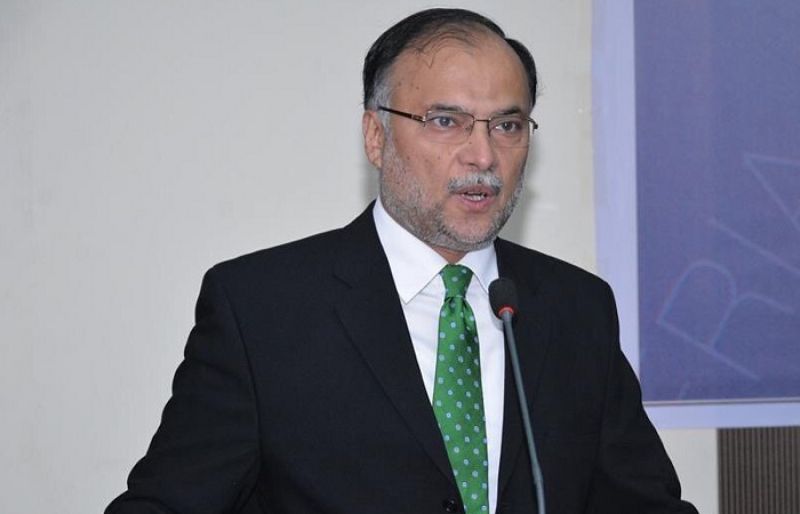Federal Minister for Planning and Development Dr Ahsan Iqbal has warned that climate change and other factors may cause a water crisis in the country in 10-15 years. He was speaking to Pakistan Muslim League- Nawaz workers and journalists at a reception hosted for him by senior party colleagues Jamal Arif Soharwardi and Shah Mohammad Shah.
Climate change has placed Pakistan in seven top vulnerable countries. So, we cannot afford laxity due to the fact that glacial line will melt in 10 – 15 years. Rainfall pattern has already changed. So, reservoirs should be built after consensus [of all stakeholders] under an anti-drought strategy, he said.
Referring to construction of Diamer -Bhasha dam with 6 MAF storage capacity, he said federal government was actively working on it. Plus, Pakistan is trying to guard its rivers through diplomacy … no power on earth can rob us of our water, he said. Besides Indus Water Treaty (IWT) with India, there were agreements in which international community stood guarantor.
Pakistan would defend its right at all forums to protect every drop of its water, he said, and simultaneously, Pakistan must ensure water efficiency and complete construction of its reservoirs.
He insisted that credit for China -Pakistan Economic Corridor (CPEC) goes to his party and challenged other claimants to produce a copy of the relevant documents. He discredited PPP leadership on CPEC. Keti Bandar project was included in CPEC while Thar coal and Karachi Circular Railway had been resurrected.
Prime Minister Nawaz Sharif has announced establishment of a university in Hyderabad and the federal government intends to start its classes in September. Federal government was working in close relationship with Sindh Chief Minister Syed Murad Ali Shah, whom he described as `a professional and an educated leader`. He said federal government has never blocked transfer of resources of any province and would never do that in future either.
Earlier, speaking at inaugural ceremony of a three day international conference on CPEC on its political, economic and social perspectives, at Sindh University, Jamshoro, he said that CPEC would bring prosperity, help curb unemployment and extremism and alleviate poverty in the country.
CPEC is not a military or security pact; it is a mega project of economic cooperation and prosperity, he said and added the government had decided to focus on geo-economics instead of geopolitics because `Pakistan is situated on an ideal location in South Asia i.e. next to China and Central Asia with a population of three billion`
He said CPEC was also addressing power generation issues because $35 billion out of the basic investment of $40bn was allocated for energy sector. Light engineering, labor intensive work pattern and low cost production mechanism were responsible for rapid growth of China’s economy and relocation of 85 million job opportunities in global setting. We need to cash on these opportunities so that Pakistani youth could also profit, he said.







